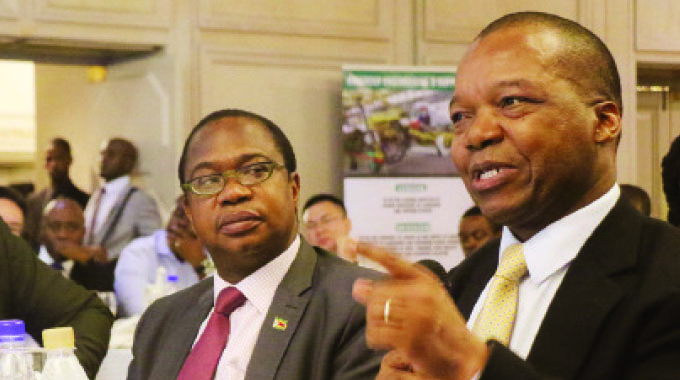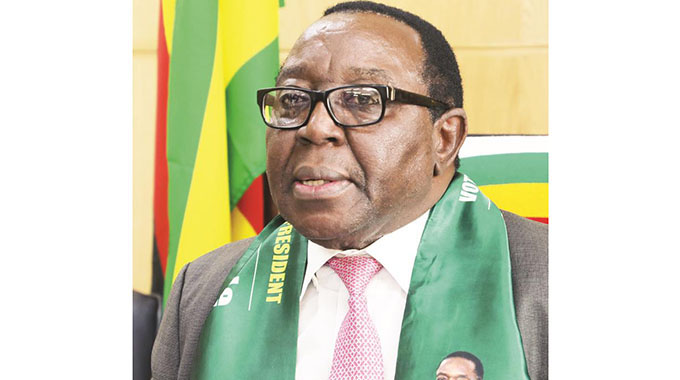Editorial Comment: Once cash economy is taxed, who needs cash

There never was any possibility of keeping the bulk of the new notes and coins out of the informal sector, or at least the bulk of the first batches released to banks, since the main reason why most people want cash in the first place is to do just that, to spend it in the informal sector.
And once it reaches the informal sector it will tend to stay there, since those in that sector never bank cash, they either spend it or sell it. And those they buy from are in that sector and those who buy their cash will be spending it in the informal sector.
So whatever happens nothing much ever returns to the banks or the Reserve Bank of Zimbabwe until well-past its destruction date.
This might puzzle RBZ Governor Dr John Mangudya. Like others who operate totally in the formal sector he probably abandoned cash some time ago. With the advent of universal swipe cards, PoS machines and mobile money transfer cash is more of a nuisance when doing business in the formal sector, especially since the Reserve Bank of Zimbabwe is, for a number of very good reasons, keeping denominations very low.
In the formal sector there are neither discounts nor advantages in using cash and some serious gains in going digital, not the least being the relative immunity from pick-pockets and other criminals.
Even those who resent paying the two percent tax on digital transactions cannot avoid this if they are formal sector residents. They pay it, along with their bank’s cash withdrawal charges, when they get the cash and since they do not get cash from their employer or business contacts every cash transaction they make has that two percent directly or indirectly.
So for people working and shopping in the formal sector, and whose transport expenses comprise queuing for petrol for a private car, cash has already become something rather old fashioned, like postage stamps or telegram forms. No one living this sort of life is going to bother queuing for cash so they can spend it in a supermarket.
This does not mean Dr Mangudya should give up his plans to convert 10 percent of money supply from numbers in databases to small-denomination notes and coins.
One reason many still need cash, even if they are taxpayers who live and work in the formal economy, is to pay kombi fares and buy cheaper vegetables from vendors. And those premiums of up to 60 percent have been vicious.
They are already falling, and will fall further as supply and demand function with more cash available and more chance for ordinary people to get their small requirements from a bank.
This will tend to level the playing field between the formal and informal sectors, and make it a lot easier to bring the informals, or at least those not breaking the law, into the formal sector. That is more of the job for Minister of Finance and Economic Development Prof Mthuli Ncube.
He would be the most unusual finance minister if he did not prefer an economy where every transaction goes through a banking database. Cash transactions, despite all their problems, have one major advantage, they cannot be traced and thus are very difficult to tax.
This is the bane of every tax authority in the world and does much to explain the popularity of taxes like VAT, customs and excise duties, and that transaction tax of Prof Ncube. Such taxes are very difficult to avoid, or at least the bulk of them are difficult to avoid since most VAT on a particular item is paid in the early stages of manufacture and distribution, leaving just the last drop of tax unpaid at final sale.
So two pressures exist to keep the informal sector as a cash economy. Besides the desire to keep the taxman at bay, there is a lot of semi-legal and plain illegal activity in the informal sector, from the charcoal burning The Herald described this week through drug dealing and prostitution.
But Prof Ncube needs to think of ways of applying equitable taxation in this sector. This in fact is one of the main complaints of those in the formal sector, both as business people and as employees.
The formals recognise, reluctantly, that they have to chip in towards Government expenses and see the benefits of hospitals, roads, schools and the like.
But they dislike, strongly, carrying the burden alone and all those statistics a year ago showing that more than half Zimbabwe’s economy flourishes in the informal sector does not make them any happier. They feel everyone should pay a share, not just the lucky few with a salary or a real business in a real shop.
There are on the books things like presumptive taxes, quite low amounts for informal sector businesses. Those made to pay them, and who think they are overtaxed are encouraged to fill in the forms, which can all be done online now, and become registered taxpayers.
But the presumptive taxes were set years ago, so the sums are now ridiculously low and we hope Prof Ncube will at least keep pace with inflation, and perhaps increases will make more traders move into the formal sector with a Zimra number.
The minister, with the help of his professional advisors, has shown a lot of ingenuity since taking office. He now needs to think how the hidden half of the economy can pay its way. As this happens cash will become less and less useful, solving another crisis. When you cannot escape taxes with cash then fewer will try.
So we once again have a double act with complimentary goals. The RBZ needs to raise the amount of cash in the market to remove cash premiums and cash discounts, levelling the playing field while the Finance Ministry needs to use that level field to start collecting a fair share of tax from everyone.
And once the cash economy is taxed, who needs cash.










Comments